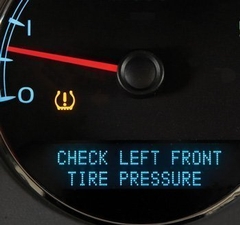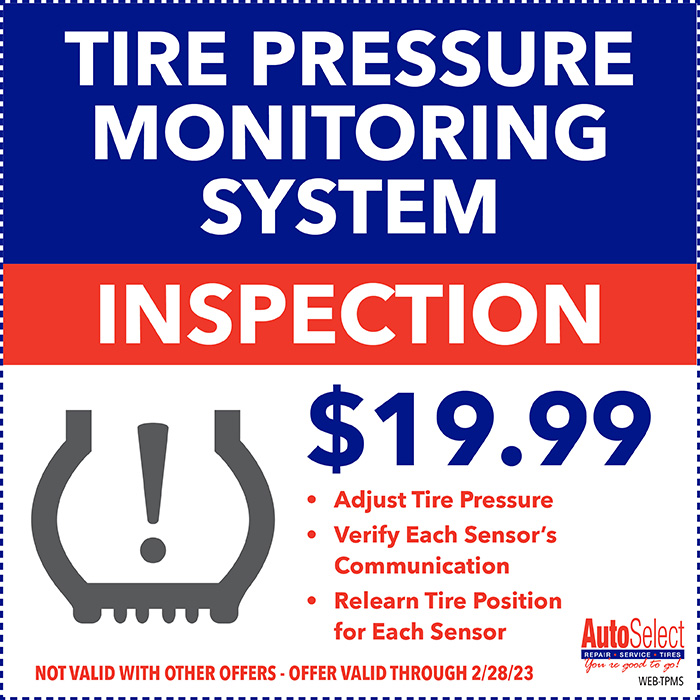
When the temperature drops, the air in your tire doesn't escape. The air in your tire actually condenses in colder temperatures, dropping 1 PSI (pounds per square inch) for every 10 degrees that the temperature drops. While the air pressure in your tires may come back to normal when the temperature increases, you shouldn't ignore low air pressure in your tires.
All new cars and light trucks since 2008 have come equipped with a Tire Pressure Monitoring System. The TPMS system detects when a tire becomes under-inflated and lights up a warning light on the dash.
So, what’s the big deal? Well, under-inflated tires can be a real safety concern. First, they don’t handle properly and that can lead to an accident. Second, under-inflated tires can overheat and cause the tire to come apart, which can also lead to an accident.
You also lose 1% of your fuel economy for every 3 pounds of pressure below ideal. So proper tire inflation can save you a tank of gas a year. And your tires last longer so you won’t have to replace them as often.
You’ll have to replace TPMS parts as they wear out. Obviously, the batteries in the sensors will die someday. Road salt and grime can damage sensors too. The system needs to be reset when you rotate or change your tires.
Because the TPMS system is so important to your safety, you should make the necessary repairs when needed. And remember, TPMS is no substitute for regularly checking your tire pressure– at least once a month.
If your TMPS, or tire-pressure monitoring system, warning light turns on due to cold weather, it will probably be a temporary problem because warmer temperatures or even just driving your car will heat them up, causing the air to expand.
You also want to keep in mind that your tires will naturally loose air pressure over time as well. They will lose 1 PSI a month naturally. If your car loses a lot of air pressure, you might want to get them inflated.
Driving with tires that have low air pressure is very dangerous, and mixing icy roads and deflate tires just makes matters even worse. Low air pressure in your tires can lead to decreased stopping time, lower gas mileage, and even decreased tire lifespan!
Now that you know why you shouldn't ignore low tire pressure, you might be wondering which steps you should take next. If your TPMS warning light is turned on, you should visit a professional and have the air pressure checked out. You want to be sure that your tire pressure isn't too low, but a little less pressure is normal in cold weather. If you ignore the TPMS light and there is a problem with your tires such as a hole or a leak, then you might get into an accident or damage your car even more.
Check out this month’s special to have your TPMS inspected. Click Here
